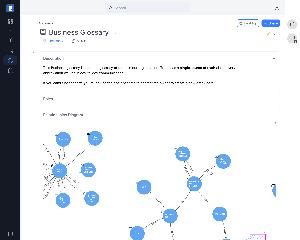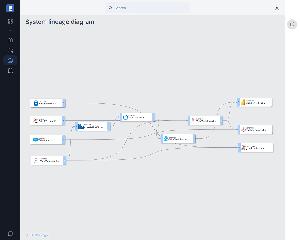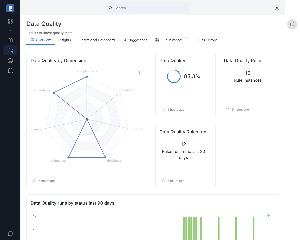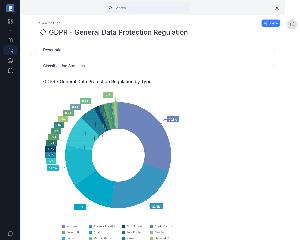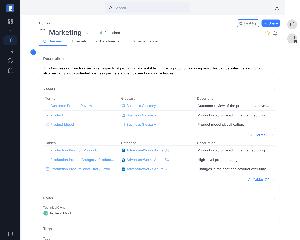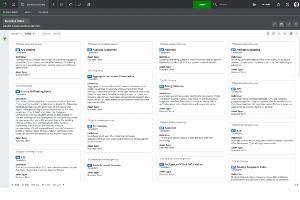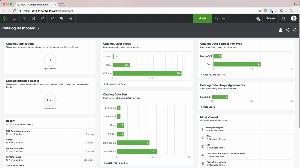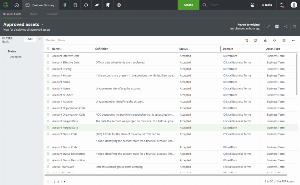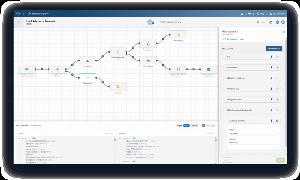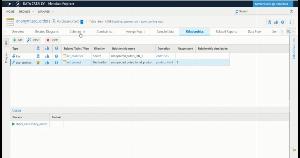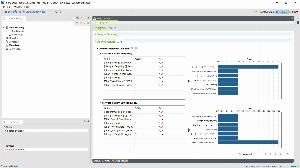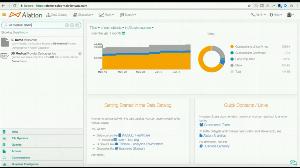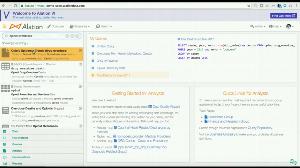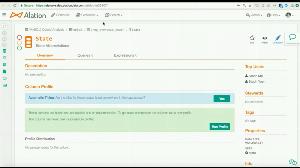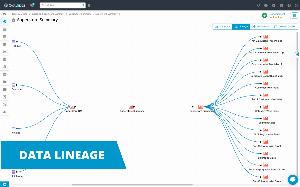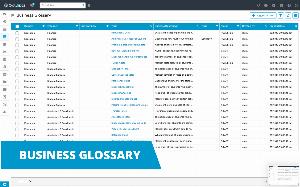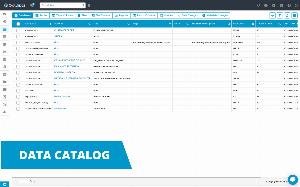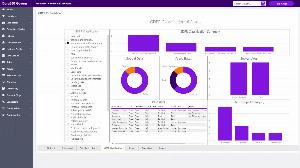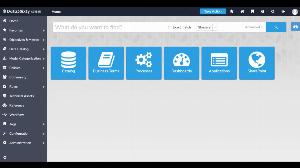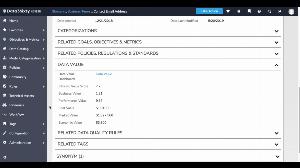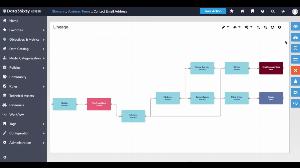Data Governance tools for Microsoft SQL Server Reporting Services (SSRS)
List of data governance tools
Data governance is a strategy of handling data within an organization. It is a set of rules, policies, standards, practices etc. which main purpose is to ensure data has a high quality and integrity, is safely stored and there are no ambiguities in meaning of common terms. Applying this strategy is a long process, engaging whole organization, especially IT and data consuming departments. There are certain data governance tools which helps applying these theoretical plans in real life.
Dataedo
Dataedo is a comprehensive data governance platform designed for mid-sized organizations seeking to catalog, document, and manage their data assets efficiently. It provides a centralized, intuitive solution that enhances data visibility, improves collaboration, and ensures compliance with industry regulations.
Dataedo seamlessly integrates with all your data sources, giving you a clear picture of your data ecosystem in one place. It supports databases, ETLs, BI tools, applications, and data lakes through 50+ native connectors. It works with modern cloud solutions, on-premises systems, and legacy platforms.
| Access control: |
|
|---|---|
| Business Glossary: |
|
| Change history: |
|
| Commenting/Community: |
|
| Data Catalog: |
|
| Data Classification: |
|
| Data Lineage: |
|
| Data Mapping: |
|
| Data Profiling: |
|
| Data Quality Management: |
|
| Support for workflow: |
|
| Web Access: |
|
Collibra Data Governance
Collibra Data Governance helps organizations understand their ever-growing amounts of data in a way that scales with growth and change so that teams can trust and use their data to improve their business. Through automating many governance and stewardship tasks, Collibra Governance enables businesses to establish a true governance foundation and trust their data while they grow.
| Access control: |
|
|---|---|
| Business Glossary: |
|
| Change history: |
|
| Commenting/Community: |
|
| Data Catalog: |
|
| Data Classification: |
|
| Data Lineage: |
|
| Data Mapping: |
|
| Data Profiling: |
|
| Data Quality Management: |
|
| Support for workflow: |
|
| Web Access: |
|
Talend Data Fabric
Talend Data Fabric combines data integration, integrity, and governance in a single, unified platform. It simplifies data quality and security with built-in functionality for making sure your insights are trusted, governed, and actionable.
| Access control: |
|
|---|---|
| Business Glossary: |
|
| Change history: |
|
| Commenting/Community: |
|
| Data Catalog: |
|
| Data Classification: |
|
| Data Lineage: |
|
| Data Mapping: |
|
| Data Profiling: |
|
| Data Quality Management: |
|
| Support for workflow: |
|
| Web Access: |
|
Alation Data Catalog
Alation’s Active data governance is a people-first approach that focuses on business needs, delivering trusted data, and driving adoption by embedding governance in the users’ day-to-day activities — effectively facilitating compliance and managing risks. By inventorying, classifying, and curating data and knowledge, Alation provides unparalleled visibility into enterprise data assets. It combines machine learning and crowdsourcing to automate and accelerate data stewardship, data classification, business glossary, and data quality documentation.
| Access control: |
|
|---|---|
| Business Glossary: |
|
| Change history: |
|
| Commenting/Community: |
|
| Data Catalog: |
|
| Data Classification: |
|
| Data Lineage: |
|
| Data Mapping: |
|
| Data Profiling: |
|
| Data Quality Management: |
|
| Support for workflow: |
|
| Web Access: |
|
OvalEdge
OvalEdge is a data governance tool that can be used for building business glossary, data classification, data quality monitoring and control, data valuation, reward and attribution, metadata change management, data access request & control, and managing roles & responsibilities.
| Access control: |
|
|---|---|
| Business Glossary: |
|
| Change history: |
|
| Commenting/Community: |
|
| Data Catalog: |
|
| Data Classification: |
|
| Data Lineage: |
|
| Data Mapping: |
|
| Data Profiling: |
|
| Data Quality Management: |
|
| Support for workflow: |
|
| Web Access: |
|
Data3Sixty Govern
Data3Sixty Govern is an enterprise data governance, catalog, and metadata management solution. It provides unparalleled value and insights, such as data scoring, dashboards & reporting, business data insights, and integrated data quality.
| Access control: |
|
|---|---|
| Business Glossary: |
|
| Change history: |
|
| Commenting/Community: |
|
| Data Catalog: |
|
| Data Classification: |
|
| Data Lineage: |
|
| Data Mapping: |
|
| Data Profiling: |
|
| Data Quality Management: |
|
| Support for workflow: |
|
| Web Access: |
|
Data governance software is a broad category of solutions which main purpose is to:
• Develop and maintain common data language,
• Ensure compliance with law regulations,
• Track data lineage,
• Assign roles and responsibilities,
• Improve data quality.
As data governance is more of a framework which should be adjusted to each organization separately, there is no one tool that suits all companies. Some may require business glossary or data catalog, while others will benefit more from advanced data lineage. Although there are vendors that provide all-in-one data governance tools platform, in some cases it may be better to select more specialized software that will cover only part of the mentioned requirements. Some examples of such tools are:
• Data dictionaries,
• Data modelers,
• Business glossaries,
• Data policies managers,
• Sensitive data discovery tools,
• Law compliance software,
• Data quality tools.
Implementing data governance framework is not an easy process yet benefits coming from it make it good investment. Common data understanding is one of the greatest outcomes which improves clear communication between departments and leads to precise analytics. It is not uncommon for IT data teams to not understand what they are working on, what KPIs are or what some terms mean. With data governance software, business users can easily share their knowledge with engineering teams.
Better data quality and assigned responsibilities for each piece of information is another game-changer for many organizations – any data discrepancy can be quickly identified and reported to the right person. From the formal point of view, data governance tools will help complying with law regulations such as European GDPR or Indian PDPB.
In the end, an outstanding example of poor data governance. In 1998/99 NASA launched Mars Climate Orbiter worth $125 million. Sadly, when approaching Mars orbit, team on the Earth lost contact with the satellite. The reason was dull - one team used metric system, while another used imperial system of inches, feet and pounds what led to wrong calculations of satellite trajectory. Although most of organizations will not send a robot to Mars it is still very important to ensure that common practices and terminology are followed within an organization in what listed data governance software can help.
 SQL Server
SQL Server
 Oracle
Oracle
 MySQL
MySQL
 PostgreSQL
PostgreSQL
 Amazon Redshift
Amazon Redshift
 Azure SQL Database
Azure SQL Database
 DBT
DBT
 Google Big Query
Google Big Query
 IBM DB2
IBM DB2
 MariaDB
MariaDB
 SAP HANA
SAP HANA
 Snowflake
Snowflake
 SQLite
SQLite
 Teradata
Teradata
 Vertica
Vertica
